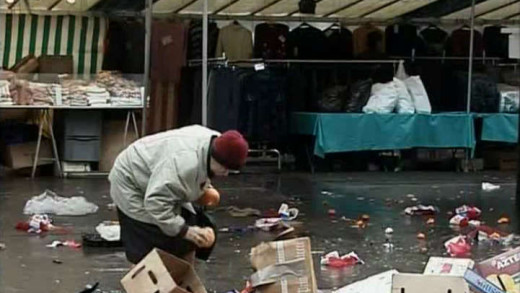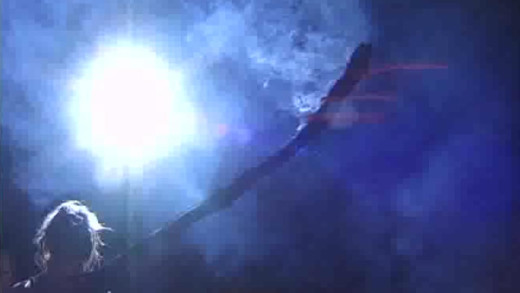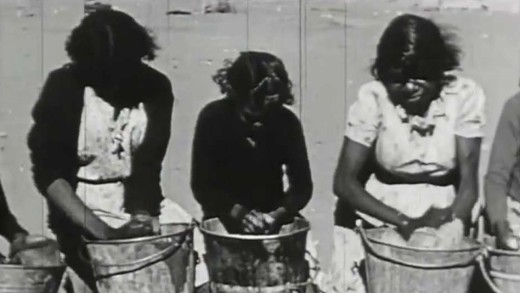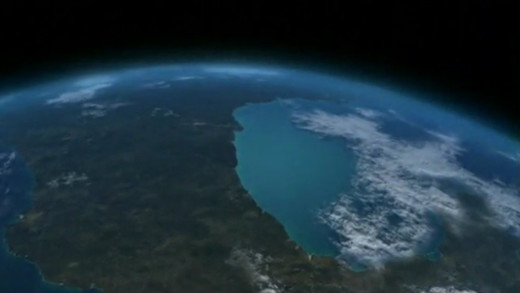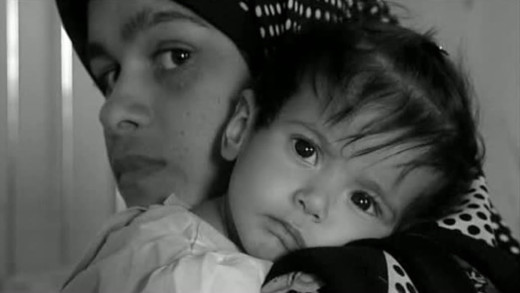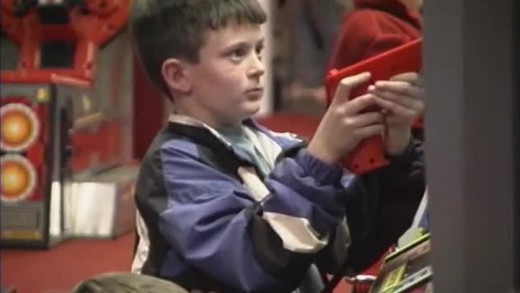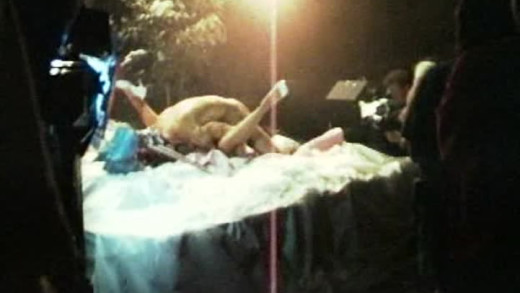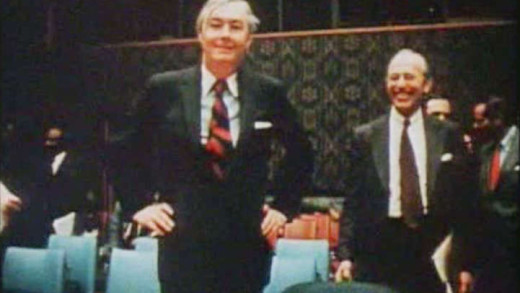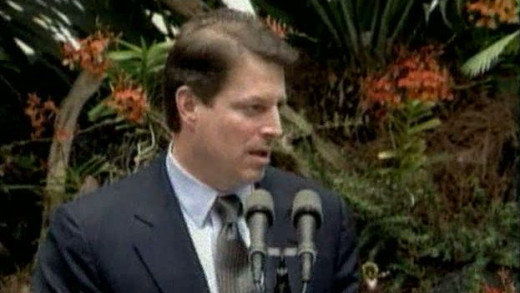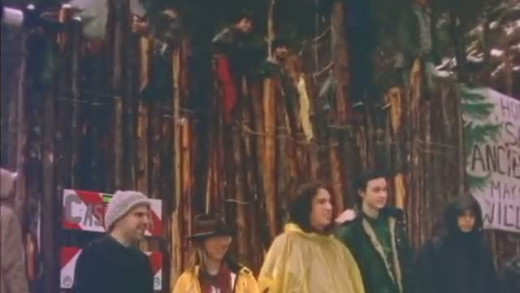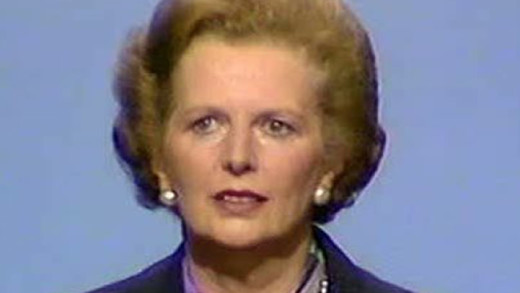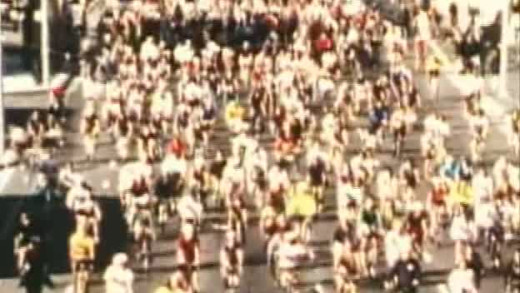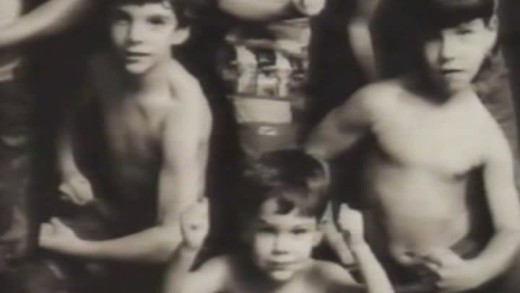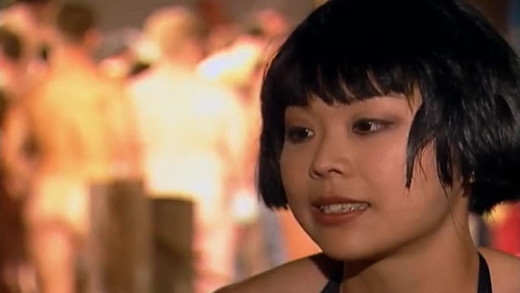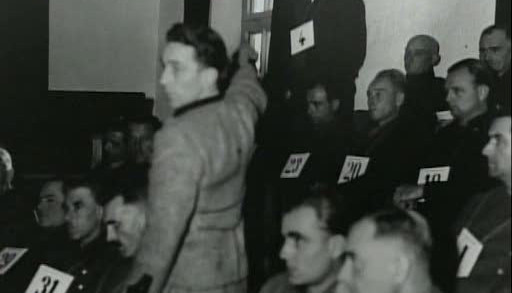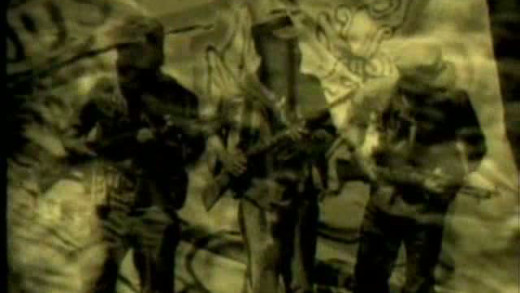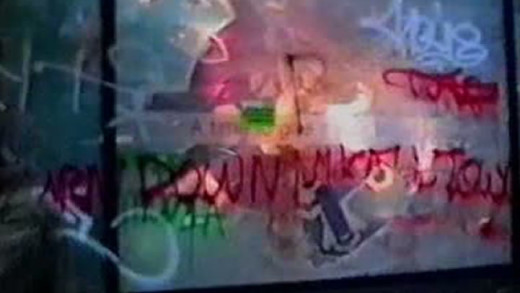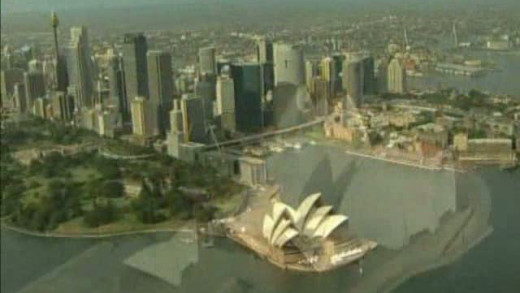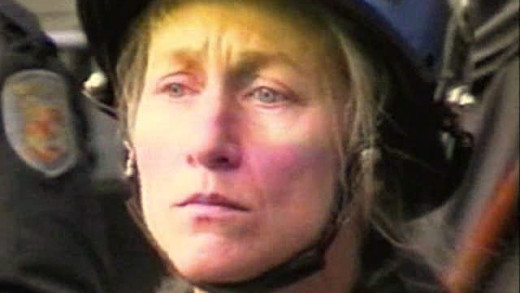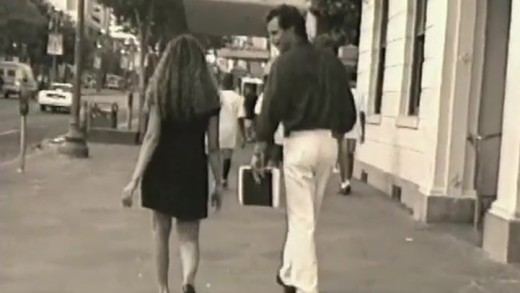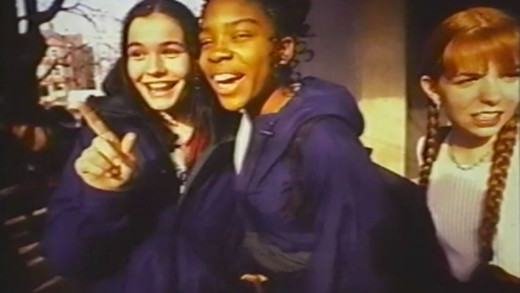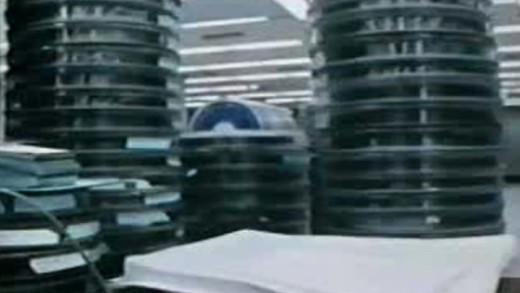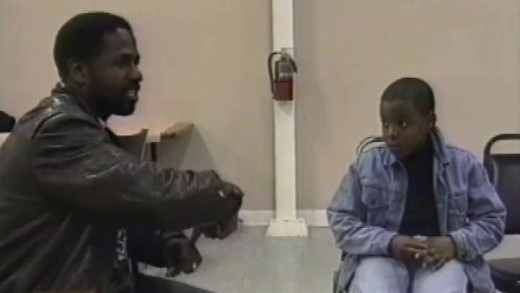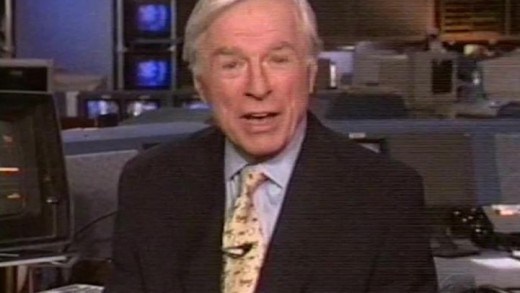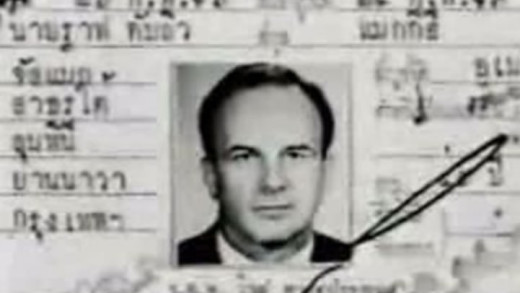The Gleaners and I explores gleaning -- the act of collecting food from farmers' leftover crops after they have been commercially harvested. Travelling along the French countryside, the film-maker follows a series of gleaners as they hunt for food, knicknacks, and personal connection; capturing the many aspects of gleaning and the many people who glean to survive -- finding not only field gleaners, but also urban gleaners and those connected to the gleaners, including a wealthy restaurant owner, an urban gleaner with a master's degree who teaches French to immigrants, and artists who incorporate recycled materials into their works...
Fire and Water
In 1983, the Australian Government approved the construction of Olympic Dam uranium mine at Roxby Downs in central South Australia, despite overwhelming opposition by the traditional indigenous land owners—the Kokotha and Arabunna people—and other Australian's in the community. With an approval for expansion of the mine 14 years later, this film documents one of the many events organised in protest of the mine, as well as other actions to raise awareness of the many impacts of uranium mining in Australia.
In Australia between 1910 and 1970, one in three children were removed from Aboriginal families and placed in government institutions and foster homes. These children, in most cases, were never to see their family again. The film tells the story of three Aboriginal people who were removed. Bobby Randall, Cleonie Quayle, and Daisy Howard. Their stories are combined with interviews with well-known Australian historians Marcia Langton and Henry Reynolds, who describe the racist assumptions behind these policies. Removing children was a deliberate government policy and the aim was the eventual disappearance of Aboriginal people as a whole.
Over three programmes David Attenborough travels from Kenya to California to investigate the contesting claims about the current state of our planet. In the first programme he examines the extinction crisis, measuring the disappearance of some species against the mass of life that still remains undiscovered. Then the crisis is explored further by looking at the root causes, where finally, the last programme asks: What are the possible courses of action open to us to sustain the future of life?
US Foreign Policy -- The War Against The Third World is a video compilation series of 10 segments about CIA covert operations and military interventions since World War II.
After a string of popular protests in Seattle against the World Trade Organisation in 1999, tens of thousands reemerged to challenge the International Monetary Fund and World Bank at their April 2000 meeting in Washington DC. Once again, media activists were on the spot to provide the non-corporate coverage you just won't find anywhere else. Breaking the Bank provides an informative background on the history and impact of the IMF and World Bank, and features extensive coverage of the events in Washington against the powerful organisations that are killing the planet.
After Iraq invaded Kuwait in 1990, the United Nations (backed strongly by the US and UK) imposed harsh sanctions on Iraq that lasted for 10 years (1991-2001); the harsh restrictions on imports of everything, including access to key medicines, resulted in over a million deaths, more than half a million of which were women and children. That's more deaths than the two atomic bombs dropped on Japan and the events of September 11 combined. The purpose was regime change, but it never came. The overwhelming majority of those killed were the poor, elderly, women and children. Empirically, sanctions overwhelmingly punish the poor, the destitute. While the sanctions were in place, the richest people in control of the resources (Saddam Hussein et al.) still had everything they wanted: food, cars, mansions, free access to medicines, etc...
At the time of making this film, the year 2000, computer games represented a $6 billion a year industry, and one out of every ten households in the United States owned a Sony Playstation—numbers that have no-doubt since skyrocketed. Back then, children played an average of ten hours per week—a stat also since to have increased today—and yet, despite capturing the attention of millions of these kids, video games remain one of the least scrutinized cultural industries. Game Over seeks to address this fastest growing segment of the media, through engaging questions of gender, race and violence. Game Over offers a much needed dialogue about the complex and controversial topic of video game violence, and is designed to encourage viewers to think critically about the games they play.
Director Dag Yngvesson begins making a documentary about the porn industry, until he is asked by a desperate director to shoot film for him and his next porn movie. After Yngvesson agrees, he is led deeper and deeper into the world of porn, speaking frankly with many of the industries most famous icons, such as Jeanna Fine, Bill Margold and a 19-year-old newcomer named Selena who discusses her career choice on film with her mother. Viewers are invited into many areas of the industry previously unseen, let alone discussed, including the real lives of the performers and the inner workings of the industry...
On December 7, 1975 with the complicity of many Western governments including the US, the UK, and Australia, Indonesia secretly invaded the small nation of East Timor. In the intervening 18 years, an estimated 200,000 East Timorese or one third of the population, had been slaughtered by the Indonesian military -- using US and British planes to bombard the island, while Western defence ministers proclaimed ignorance. As John Pilger tapes an Australian diplomat admitting that East Timor was considered "expendable", no one watching the massacre can excuse the geopolitical machinations that led to this genocide...
Some political leaders have labelled climate change the next big issue facing the coming millennium, while others staunchly deny that such a problem even exists. Emission Impossible sets out to view the landscape of rhetoric against the urgent need for action. What is Australia's role in the symptoms of a warming climate, and what needs to be done to change?
An eclectic group of activists take a stand to protect an old growth forest from logging at Warner Creek in the Willamette National Forest of Oregon. The activists block the logging road, repel State Police and intervene to stop timber sales. Over months a community builds around the blockade and similar actions spread across the region. Filmed by the activists themselves, PickAxe is the account of the direct actions from the perspective of the participants to save Warner Creek...
The Mayfair Set is a four part series that studies how capitalists overtly and surreptitiously came to prolifically shape governments during the 1980s, epitomised by the Thatcher government in Britain at the time. But the corporate influence of political power doesn't simply arrive, it rather culminates after decades of engineering rooted in the economic collapse from the aftermath of the Second World War. This series focuses on the unreported and almost unseen approach that capitalists have taken since the 1940s to gradually take control of the political systems of not only the United States and Britain, but elsewhere around the world—exemplified by the boom of globalisation.
We Are Traffic
We Are Traffic chronicles the history and development of the "Critical Mass" bicycle movement -- one of the most dynamic social political movements of the apathetic 90s. In over 200 cities in 14 different countries, Critical Mass has now become a monthly ritual of reclaiming the streets by bicycle activists riding en masse...
Tough Guise
Tough Guise -- Violence, Media and the Crisis in Masculinity examines the relationship between the images pervasive in popular culture, and the construction of so-called masculine identities from them.
During a ten-hour period in January 1995, Annabel Chong had sex with 251 men in front of cameras. The event was a world record and the resulting video sold more than 40,000 copies, starting a trend of record-breaking gang-bang pornography. Chong states that she intended for this act to "challenge the notion of women as passive sex objects," and added, "I wanted to take on the role of the stud. The more [partners], the better." Sex: The Annabel Chong Story revisits the story of that day and connects it to Chong's life as a student and as the daughter of a middle-class Chinese couple in Singapore. She talks about her decisions, and the film also follows her to an AIDS test after the world-record-setting recording where she also self-harmed and was never paid the $10,000 she was promised. The film closes on route home to Singapore, where Chong visits her parents who do not know about her dealings with the porn world, while friends and professors do. Should she tell her mother?
In the early 1940s, hundreds of thousands of people unknowingly became test subjects in toxins experiments and biological weapons tests conducted by the United States government. LSD tested on civilians, nerve gas sprayed into suburbs, hospital patients injected with plutonium, children exposed to biological and chemical agents just to see what would happen...the list goes on. And in most if not all cases, tests were carried out without the knowledge or consent of those involved. In 1996, evidence of these secret operations hit the news, uncovering a history of secret operations and covert projects that cast a large shadow over the operations of US military and intelligence agencies, to this day. Experiments with biological weapons and the testing of chemical warfare were only part of the story...
The day the North American Free Trade Agreement (NAFTA) comes into effect, several thousand soldiers take over half the state of Chiapas, declaring a war against the global corporate power they say rules Mexico. They call themselves the Zapatista National Liberation Army. Zapatista shows this uprising, the story of a peasant rebellion, armed and up against the first world military. It is the story of a movement that transformed Mexican and international political culture.
Interspersed with shots of direct-action and interviews with participants, Big Rattle In Seattle documents the protests in Seattle against the World Trade Organisation conference in September 1999.
The 2000 Olympic Games in Sydney were universally recognised as an overwhelming success. The Australian heroine from start, when she carried the Olympic torch into the stadium, to finish, as she crossed the line to take 400m gold, was the indigenous athlete Cathy Freeman. Against the will of many of her still oppressed people, she came to represent the symbol, albeit shallow, of reconciliation between White Australia and Indigenous Australia. But the frenzy of flames and fireworks surrounding the Games blinded the rest of the world to the real history behind it all...
Using camera footage recorded by protesters at the scene of the World Trade Organisation riots in the United States during November 1999, Breaking The Spell documents the events of the time from the perspective of the activists, following the massive 'controversial' street protests and ensuing confrontations with police. Rather than attempting to cover every situation at the WTO, Breaking the Spell covers a few scenes in depth, filmed in the thick of the action, including footage that aired nationally on 60 Minutes...
War Zone is a short film about street harassment. Filmmaker Maggie Hadleigh-West walks crowded urban streets armed with a camera and microphone, trailed by one or two women also with cameras. Whenever a man harasses her, with ogling or words, she turns the camera on him, moves in close, and questions his behaviour. The questions are not usually for dialogue but more for making him as uncomfortable as he's made her. More than 50 such encounters are included: the men react with bravado, embarrassment, or anger. None apologise. Interspersed are the filmmaker's voice-over stories of growing up and dealing with men, as well as interviews with several women who talk about how they handle similar street harassment and what they feel about it. What does it feel like to be a woman on the street in a cultural environment that does nothing to discourage men from heckling, following, touching or disparaging women in public spaces?
This film examines the forces of culture influencing young people's decisions about sex: media, family, religion, alcohol, and so on. By examining the cultural environment in this way, this film becomes a tool for facilitating informed discussions about the myriad influences facing young people. Filmmaker Dan Habib features the stories of eight young people, ages 16-24, and weaves them with observations about the messages young people get from popular culture.
Nerds 2.0.1: A Brief History of the Internet is a documentary series written and hosted by Mark Stephens under the pseudonym Robert X. Cringely as a sequel to Triumph of the Nerds. The series follows on by documenting the development of ARPANET, the Internet, the World Wide Web and the resulting dot-com bubble of the mid and late 1990s...
I Am A Man is a film that links everyday black men from various socioeconomic backgrounds with some of Black America's most progressive academics, social critics and authors to provide an engaging, candid dialogue on black masculine identity in North American culture.
Produced twenty years ago, and even several years before the rise of Fox News, The Myth of the Liberal Media is possibly relevant now more than ever. The film dissects how news content gets shaped within a narrow and ultimately conservative institutional framework that marginalises other perspectives, filtering news events through a lens that serves power. Featuring scholarly analysis from Justin Lewis, Edward Herman and Noam Chomsky, The Myth of the Liberal Media asks: If you want to understand the way a system works, you look at its institutional structure. How it is organised, how it is controlled, how it is funded. The documentary examines the relationship advertising has in funding the media, and how this sets agendas, as well as exploring certain narratives that are propagated through a number of case studies that reveal how these mechanisms ultimately serve power instead of public interest.
From its origins as the Office of Strategic Services in the 1950s until present as the CIA, president Harry Truman's creation has been the object of mystery, thrills and fear to people all over the world with even the White House fearing the agency. With resources to assassinate political leaders, overthrow governments and start wars, Secrets Of The CIA documents these operations of the CIA from the perspective of ex-agents as they speak about their experiences working for the CIA, tell of what they were required to do in places like South America, Europe and in the United States, and how they enjoyed the work...
Everybody who has survived adolescence knows what a scary, tumultuous, exciting time it is. But if we use memories of our experiences to guide our understanding of what today's girls are living through, we make a serious mistake. Girls are living in a new world. Reviving Ophelia is a call from Dr. Mary Pipher, a psychologist who has worked with teenagers for more than a decade. She finds that in spite of the women's movement, which has empowered adult women in some ways, teenage girls today are having a harder time than ever before because of higher levels of violence and sexism in the culture. The current crises of adolescence--frequent suicide attempts, dropping out of school and running away from home, teenage pregnancies in unprecedented numbers, and an epidemic of eating disorders--are caused not so much by "dysfunctional families" or incorrect messages from parents as by our media-saturated, image-obsessed culture.
